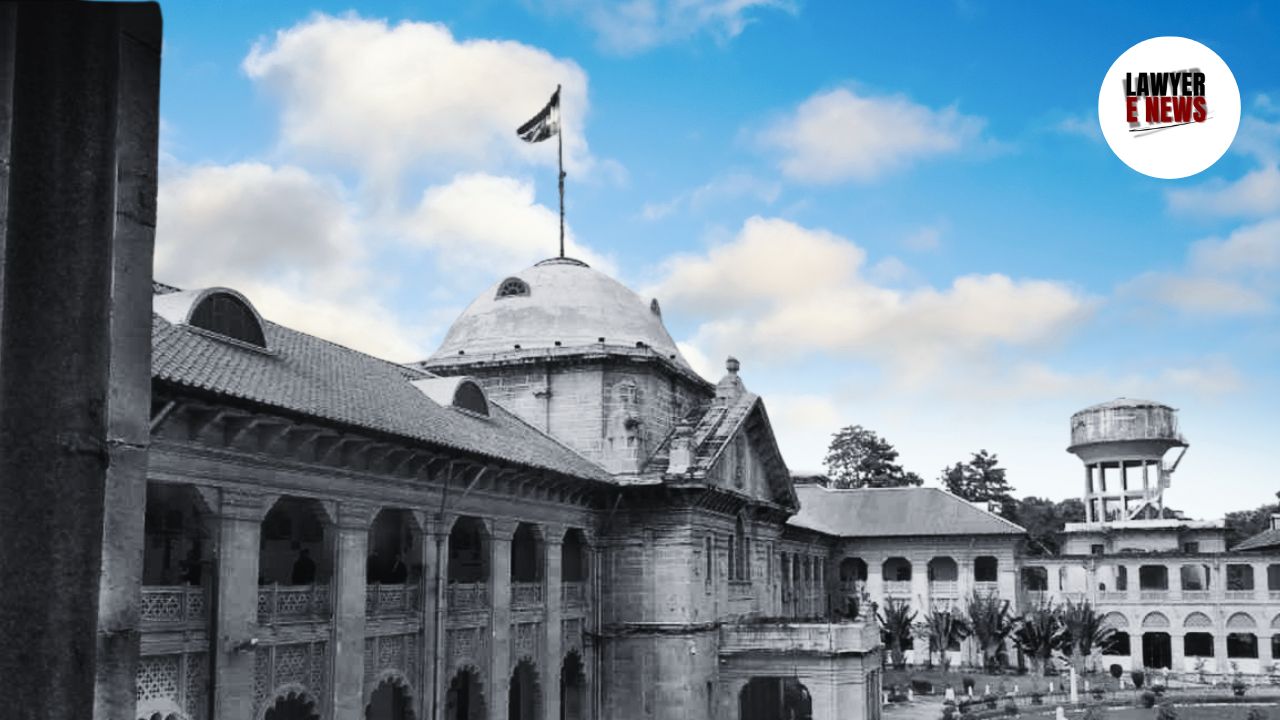-
by sayum
14 February 2026 2:22 PM



Allahabad High Court in Smt. Alka Saxena v. Sri Pankaj Saxena, overturned a Family Court ruling that had granted a divorce under the Hindu Marriage Act, 1955 (HMA). This decision scrutinized the statutory bar on divorce petitions presented within one year of marriage and clarified the standard for what constitutes "exceptional hardship" or "depravity" under Section 14(1) of the HMA.
The marriage between Smt. Alka Saxena (Appellant) and Sri Pankaj Saxena (Respondent) was solemnized on January 15, 1999. Within less than a year, the Respondent filed for divorce on December 16, 1999, citing cruelty. Initially filed as a miscellaneous case, the petition underwent various procedural reassignments before reaching the Family Court, Firozabad, where it was re-registered as Case No. 186 of 2013.
During these proceedings, the Appellant sought restitution of conjugal rights, which was decreed on November 14, 2000. However, the Respondent subsequently amended his petition to include the ground of non-compliance with the restitution decree under Section 13(1-A)(ii) of the HMA.
The primary issue was the timing of the Respondent's divorce petition, filed within a year of marriage, which contravened Section 14(1) of the HMA. Section 14 prohibits divorce petitions within the first year of marriage unless the petitioner files for special permission on grounds of "exceptional hardship" or "exceptional depravity" by the respondent.
In this case, no such application for permission had been made by the Respondent. Citing the statutory language, the Court clarified that “the bar operates against the cause of action arising to a party to a Hindu marriage within the first year of marriage.” It further emphasized that “without the application specified in Section 14, a divorce petition cannot be entertained regardless of the passage of time or procedural delays.”
The Family Court had granted the divorce based on allegations of cruelty. However, the High Court found that the lower court had relied on the Appellant’s conduct during the legal proceedings as evidence of cruelty, instead of considering events within the marriage itself. The High Court ruled that “how the appellant conducted herself in legal proceedings…cannot be deemed cruel behavior within the context of marriage.”
The Court noted that while the Respondent alleged cruelty in his pleadings, the record did not substantiate these claims with credible evidence, and mere incompatibility or resistance to divorce proceedings does not meet the threshold for cruelty under Section 13(1)(ia) of the HMA.
Irretrievable Breakdown of Marriage Not a Ground for Divorce
While the Family Court seemed inclined to grant divorce on the notion of an "irretrievable breakdown" of marriage, the High Court clarified that this is not a statutory ground under the HMA. Only Parliament has the authority to introduce irretrievable breakdown as a ground for divorce, the judges noted, and thus, “such a finding is extraneous to the statutory scheme.”
The High Court set aside the Family Court's judgment and awarded costs of Rs. 50,000 to the Appellant, to be paid from Rs. 2,50,000 that the Respondent had deposited in court. The balance amount, after deducting maintenance dues, was ordered to be refunded to the Respondent.
This judgment reinforces strict compliance with statutory prerequisites for divorce petitions and underscores the importance of substantive evidence in claims of cruelty. The Allahabad High Court’s ruling highlights that procedural requirements cannot be bypassed, and the court is bound to the statutory grounds provided under the HMA.
Date of Decision: October 24, 2024
